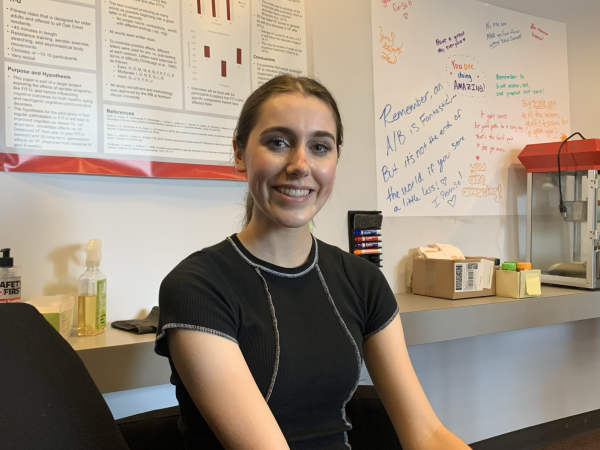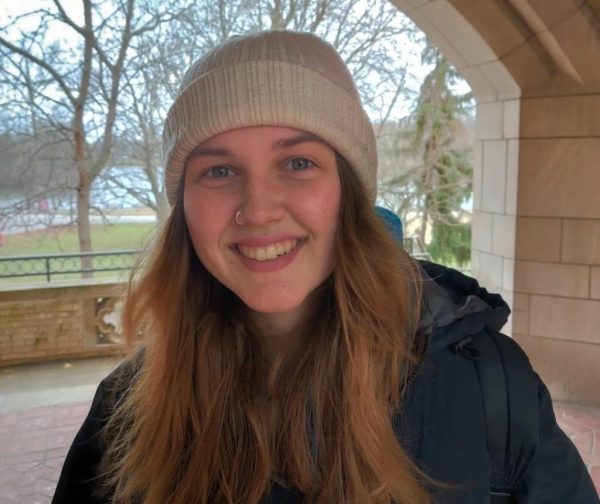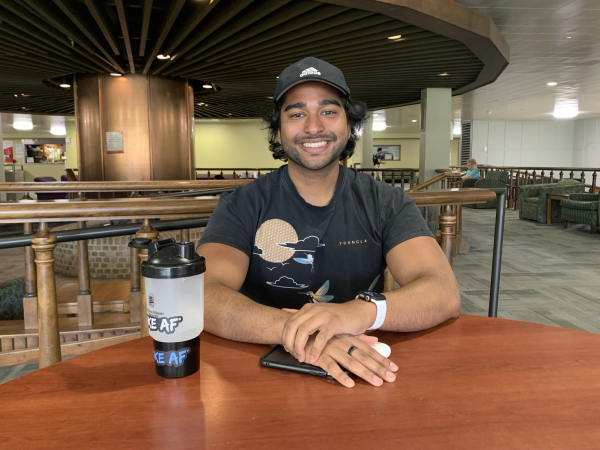CHANCE Program celebrates 50 years
October 22, 2018
DeKALB — The McKinley “Deacon” Davis CHANCE Program is celebrating 50 years of providing opportunities to students in higher education.
The College Help and Assistance Necessary for College Education [CHANCE] Program was a vision of the sixth NIU President Rhoten Smith, in 1968. The title of the program comes from its first director, McKinley Deacon Davis.
CHANCE Director Denise Hayman said Smith wanted to be involved with students who were protesting the Vietnam War and making demands for greater education, like providing additional resources and creating greater access for students.
“President Smith was very conscious of diversity, issues related to diversity and to diversify the campus,” Hayman said.
Hayman said the program is aimed toward providing opportunities to students from under-resourced high schools, helping to prepare them for college in ways their high schools may not have. She also said the goal is to provide students with the necessary resources to achieve their full potential in college and future careers.
Hayman said students who do not meet the current requirements of the university when applying through the Office of Admissions will be referred to the CHANCE Program.
NIU requires first-year students to apply with an ACT score of at least 19 and a cumulative GPA of at least 2.75; or an ACT score of at least 23 and a cumulative GPA of at least 2.5, according to the Undergraduate Admissions website.
Hayman said CHANCE requires all applicants to interview and take a math test to qualify. Out of 4,700 applications, a maximum of 500 students are selected to participate in the program.
She also said CHANCE students have to apply for FAFSA and pay their tuition, just like any other student; they are not offered a full ride.
Hayman said University of Illinois at Chicago has a similar program to branch off of CHANCE; however, NIU is the foundation of the program. She said many students from the program are first-generation college students from low-income households or under-resourced high schools.
Hayman said she hopes CHANCE and the overall campus will help students finance their education. She said she wants them to have more resources regardless of the university they attend and she hopes students graduate, find impressive careers and lead successful lives.
“Sometimes what you have to do for folks, especially those who are motivated and want to earn a college degree, is open a door, and this is what CHANCE has done,” Hayman said.
First-year Biology major Keosha Henderson heard about the CHANCE Program when she graduated from Curie Metropolitan High School. She said her high school counselor explained how the CHANCE Program gives students a chance to prove they are eligible to attend the university. She plans to go to medical school after graduating to become an OBGYN.
“You are really set up to succeed [through CHANCE],” Henderson said. “I don’t think you should fail with all the help you get,” Henderson said.
Henderson said the staff at CHANCE will help with anything and want to see students succeed.
One of the required parts for all first-year CHANCE students is to use the Writer’s Workshop in DuSable. Writer’s Workshop Director Suzanne Coffield offers tutoring and support for English assignments.
“I think it’s a wonderful opportunity for students to come in and find a comfortable home and a lot of structured support so they can succeed academically,” Coffield said.
Coffield said tutors at the Writer’s Workshop help with assignments and mentor students. She said tutors help students understand academic expectations at NIU, like course requirements. The tutors help students form study habits and teach them how to form connections with other people, groups and clubs across campus.
Coffield said she appreciates the counselors at CHANCE because of the students they find and introduce to the CHANCE Program. Coffield said the counselors directly communicate with the students and offer them opportunities to succeed, providing advice throughout college and after graduating. She said in many cases, students received their masters at NIU and became counselors to help other students involved in the program.
“It’s a program that offers opportunities in ways to help our students for a long time,” Coffield said.













